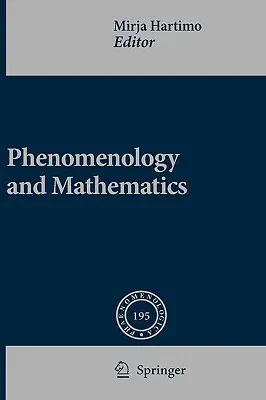Phenomenology and Mathematics (2010)Hardcover - 2010, 14 April 2010

Qty
1
Turbo
Ships in 2 - 3 days
In Stock
Free Delivery
Cash on Delivery
15 Days
Free Returns
Secure Checkout

Part of Series
Phaenomenologica
Print Length
216 pages
Language
English
Publisher
Springer
Date Published
14 Apr 2010
ISBN-10
9048137284
ISBN-13
9789048137282
Description
Product Details
Book Edition:
2010
Book Format:
Hardcover
Country of Origin:
NL
Date Published:
14 April 2010
Dimensions:
23.39 x
15.6 x
1.6 cm
ISBN-10:
9048137284
ISBN-13:
9789048137282
Language:
English
Location:
Dordrecht
Pages:
216
Publisher:
Series:
Weight:
530.7 gm